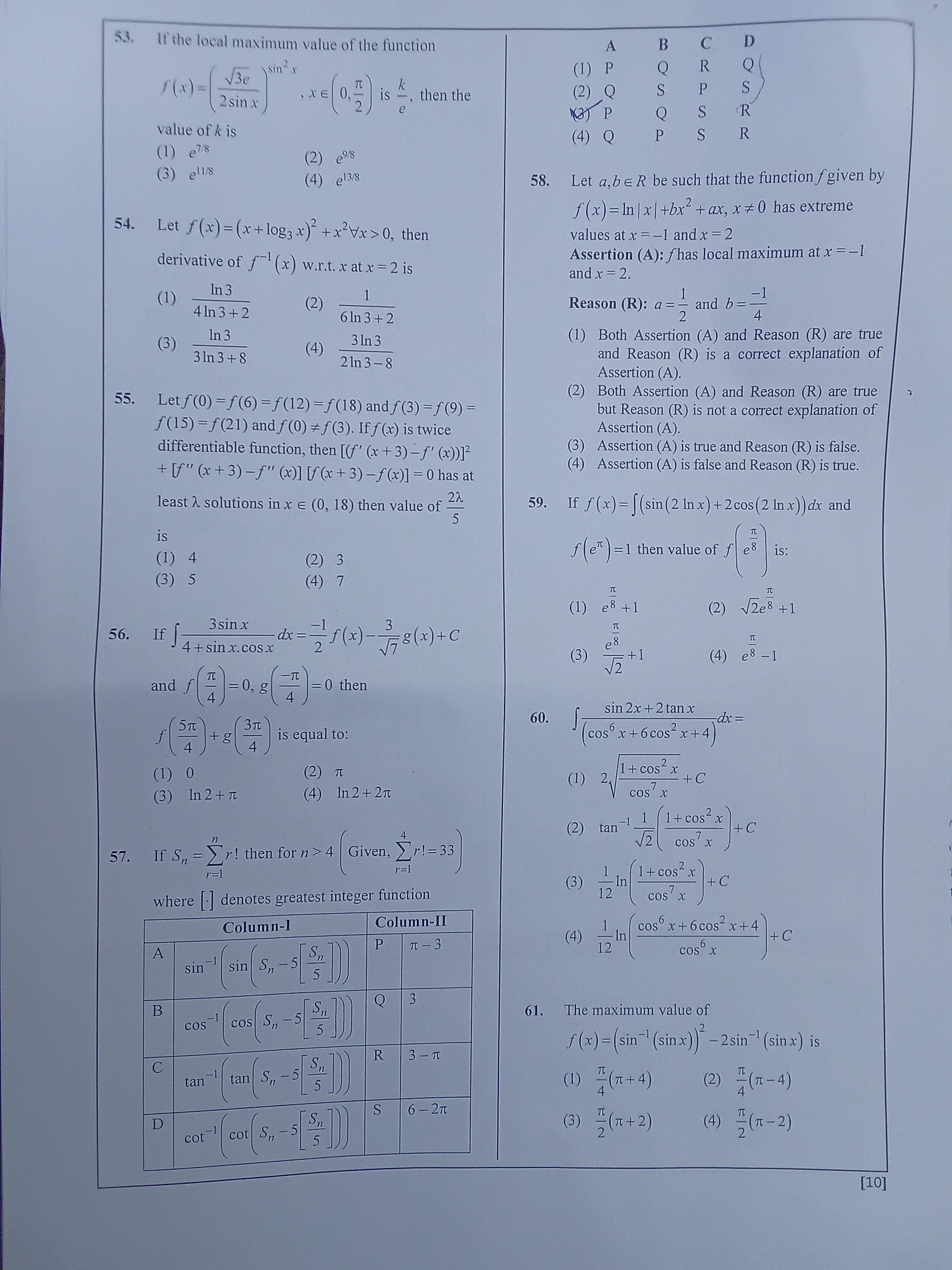Question
Question: If the local maximum value of the function $$f(x) = \left(\frac{\sqrt{3e}}{2\sin x}\right)^{\sin^2 x...
If the local maximum value of the function f(x)=(2sinx3e)sin2x,x∈(0,2π) is ek, then the value of k is

A
e^{7/8}
B
e^{11/8}
C
e^{9/8}
D
e^{13/8}
Answer
e^{11/8}
Explanation
Solution
Let y=f(x). Taking the natural logarithm, we get lny=sin2xln(2sinx3e). Simplify lny=sin2x(ln(3e)−ln(2sinx))=sin2x(21ln(3e)−ln2−ln(sinx)). Differentiate with respect to x: f(x)f′(x)=sin(2x)(21ln3+21−ln2−ln(sinx))−sinxcosx. Setting f′(x)=0 (and since f(x)>0), we set the term in parentheses to zero after dividing by sinxcosx: 2(21ln3+21−ln2−ln(sinx))−1=0, which simplifies to ln(sin2x)=ln(3/4). Thus, sin2x=3/4. Since x∈(0,π/2), sinx=3/2, which means x=π/3. The local maximum value is f(π/3)=(2(3/2)3e)3/4=(e)3/4=e3/8. Given this value is k/e, we have e3/8=k/e, so k=e⋅e3/8=e11/8.
